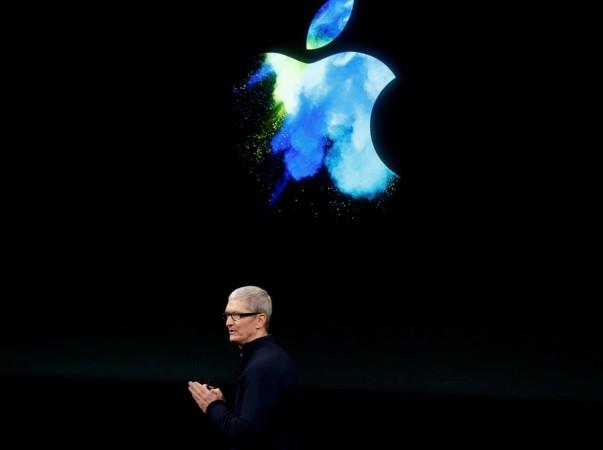
The rise and rise of the Apple stock is probably coming to an end. The iPhone maker said on Wednesday it was drastically lowering first quarter revenue estimates, primarily hit by a demand slowdown in China.
Apple CEO Tim Cook's statement rattled markets, leading to a 7 percent fall in the technology major's shares in the afterhours. More shocks will follow on Thursday.
As Bloomberg rightly put it, the negative guidance was due for a long time as everyone outside the Apple bubble world knew that iPhone cannot carry the Apple saga endlessly.
The estimated drop in revenue Tim Cook flagged is not a little sum. He said he expects first-quarter revenue to be around $84 billion, compared with previous guidance of revenues between $89 billion and $93 billion. The new figure fell vastly short of analysts' expectations of $91.3 billion.
After Cook lowered revenue guidance, the stock tanked more than 7 percent in after-hours trading Wednesday. To see the investor losses in perspective one only needs to look at how much Warren Buffett's Berkshire Hathaway lost in the aftermath - $2.8 billion.
While Tim Cook came across as unruffled by the huge dive, and underscored the strong fundamentals, one line from his communiqué to the Apple staff pithily summarised the situation.
"As you will see, our revenue shortfall in Q1 is from iPhone, primarily in Greater China."
Raging trade war
In a letter to investors Cook clearly put down the reasons for the sharp downturn. "While we anticipated some challenges in key emerging markets, we did not foresee the magnitude of the economic deceleration, particularly in Greater China," he said.
The slowing economic conditions in China and a drastic fall in the holiday sales due to prevailing tensions from the raging trade war with the US dampened Apple's performance in China.
"As the climate of mounting uncertainty weighed on financial markets, the effects appeared to reach consumers as well, with traffic to our retail stores and our channel partners in China declining as the quarter progressed," Cook wrote in the letter.
The second of Apple's ruses is the fall in the rate at which existing users buy iPhones. Immense competition in the sector and the premium pricing of iPhone are forcing existing customers to use their iPhones for longer worldwide, according to analysts.
This slow churn in the market has hurt Apple deeply. The hurt then got exasperated by its inability to find new consumers in the shrinking Chinese market.




![Ultrahuman launches Ring PRO, free charging case with more than just power and Jade AI [details] Ultrahuman launches Ring PRO, free charging case with more than just power and Jade AI [details]](https://data1.ibtimes.co.in/en/full/829151/ultrahuman-launches-ring-pro-free-charging-case-more-just-power-jade-ai-details.png?w=220&h=135&l=50&t=40)





![Ultrahuman launches Ring PRO, free charging case with more than just power and Jade AI [details]](https://data1.ibtimes.co.in/en/full/829151/ultrahuman-launches-ring-pro-free-charging-case-more-just-power-jade-ai-details.png?w=220&h=135)
